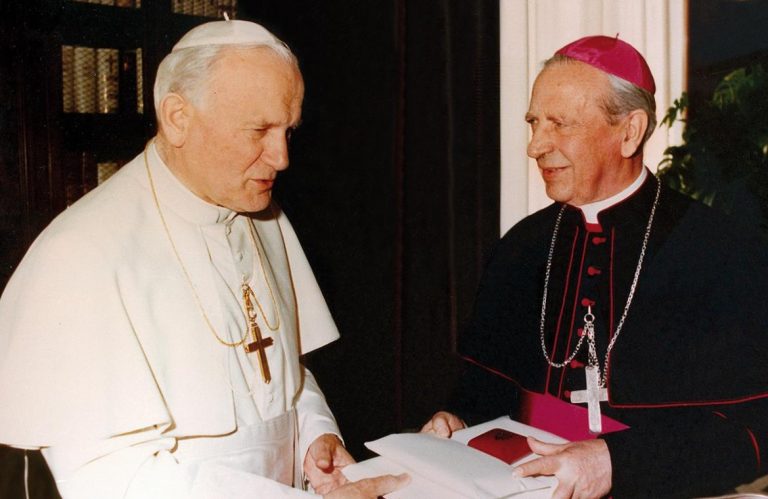Today, Monday, July 12, 2021, Mexican Father Mario Arroyo Martinez shares with Exaudi’s readers his weekly article in “Theology for Millennials,” on a little known blessed, Blessed Alvaro del Portillo.
* * *
Persons that are beatified are so, among other reasons, to be models in the Church and for the world. Let’s say that Saints and Blesseds are like a fashion parade of spiritual models. They offer very varied ways, of which the faithful can make use as is appropriate to them, in the sense of modeling their action after examples of lives of perennial moral value.
Given God’s mercy, every age has the Saints it needs, Blesseds and Saints that are highly topical. One of these, though little known, is Blessed Alvaro del Portillo, Spanish by birth, of a Mexican mother of Cuernavaca. His “profile” might not seem very modern, as he ended up being a Bishop. However, if one digs into his life and contemplates the crisis the Church is currently going through, one sees in him the perfect fit to palliate some of the gravest ailments the Church is suffering.
In fact, Blessed Alvaro offers us the model of a holy Bishop, at once Pastor and of the Curia, as he was head of a small portion of the Church, the Opus Dei, and carried out important roles in the Roman Curia. He was a personal friend of Saint John Paul II, who, breaking protocols, went to pray before his mortal remains. Moreover, he was the Confessor and Spiritual Director of dozens of Bishops. He was, in other words, someone who carried out his personal apostolate among his equals: Bishops and Cardinals of the Roman Curia and also of different dioceses around the world.
Why is his figure current? It goes without saying that, sadly, the Ecclesiastical Hierarchy has been very damaged in its moral prestige, given the way that scandals of clerical pederasty have been handled. Neither has it fared well in regard to financial and moral scandals within the Vatican walls. It seems that corruption abounds there and, in the popular imagination, there are individuals there that, instead of serving Christ, make use of Christ for their earthly ends.
In face of this sad image, Blessed Alvaro reminds us that, in reality, those scandals are the exception, as the majority of the individuals that work in the Roman Curia are good persons, who work silently and hiddenly for the Church, for Jesus Christ, and Saints and Blesseds are not lacking among them, Alvaro del Portillo being one of them.
The Ecclesiastical Hierarchy represents the Catholic Church. It must recover its moral prestige urgently, but this isn’t easy, as scandals make news. However, more than a structural reform what is needed is personal conversion. Each one of the Pastors and individuals that work in the Vatican must take seriously the call to the fullness of Christian life and seek coherence between their life and their work.
The Hierarchy is the sacred authority, which has the power to sanctify; hence, the life of its members must be in accord with their mission. Blessed Alvaro reminds us that that isn’t a utopia, but a tangible and recent reality, a model that many of those that have authority in the Church today, were able to know.
Therefore, it’s imperative to offer the testimony of figures such as that of Father Alvaro del Portillo, who became Saints in great measure, exercising roles in the Church. Blessed Alvaro began working in the Roman Curia before Vatican Council II, and continued to do so until his death in 1994.
He spent almost 50 years serving the Church and souls in different roles, in a hidden and selfless way, contributing with his work, his prayer, and his smile to the sanctification of the Church from within. Only if his example spreads, is contagious and is diffused, will the Church be able to recover its lost moral credibility.
Happily, he’s not the only case, Vietnamese Cardinal François-Xavier Nguyen Van Thuan, whose cause of Canonization is underway, also worked during the last years of his life in the Roman Curia. We hope that he and Blessed Alvaro will soon be Saints, so that the latter is better known and that both will help to qualify the unjust generalizations that are usually levelled against the Roman Curia and the Catholic Hierarchy in general.
If we are all called to holiness, the Hierarchy is so with more reason, as it represents the Church and people often see and judge it severely.










